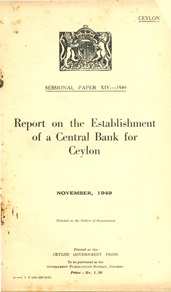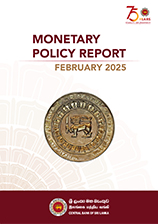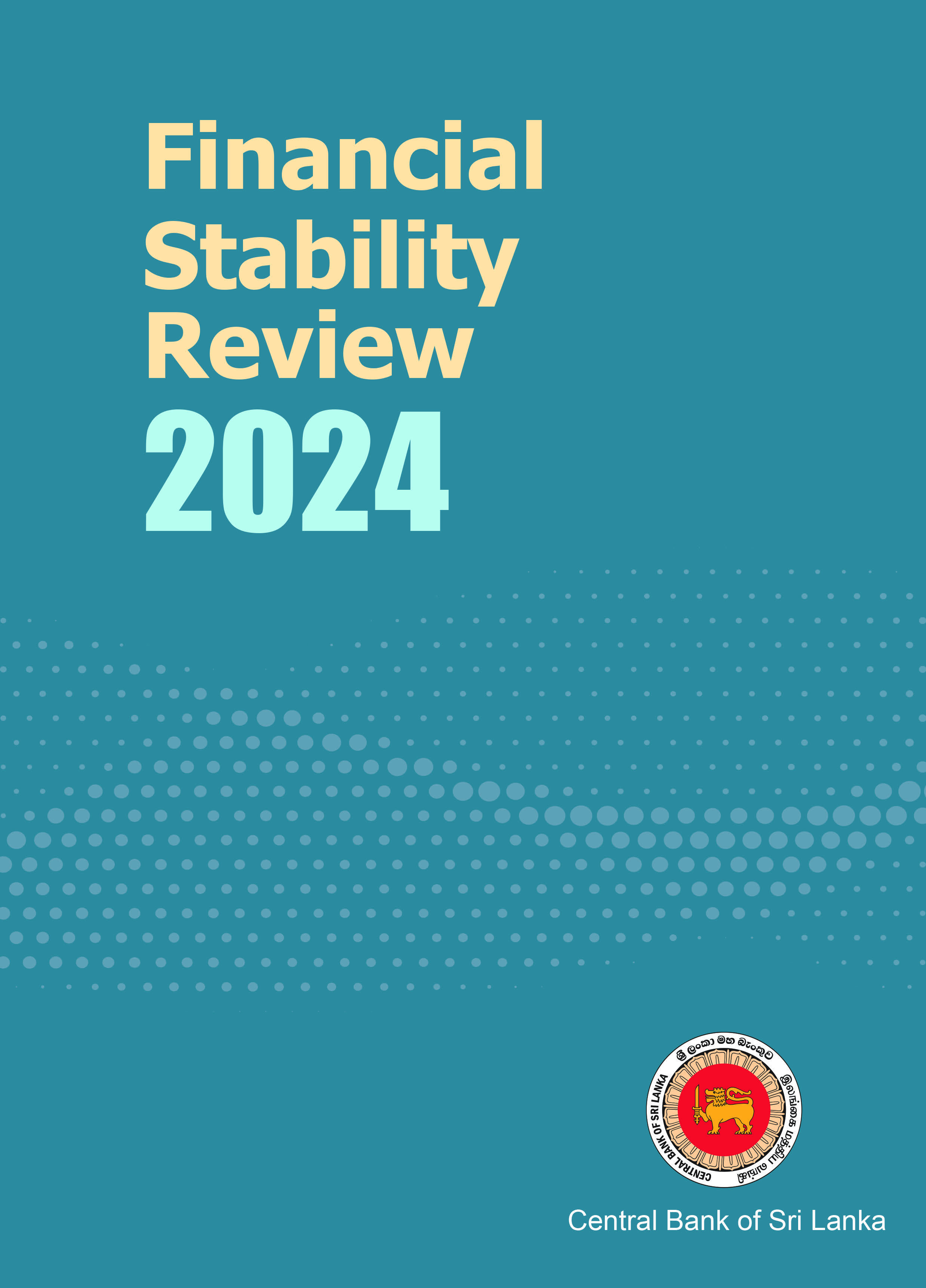Frequently Asked Questions (FAQs)
Finance and Leasing Companies
What are the basic requirements for obtaining a licence as a finance company under the Finance Business Act No. 42 of 2011 (FBA)?
- Being registered as a Public Company at the Registrar of Companies
- Core Capital being available not less than the amount determined by the Central Bank of Sri Lanka (CBSL) – The Current Core Capital being Rs. 2.5 billion
- Ability to comply with the directions and rules applicable to finance companies
- Submission of an application to the CBSL, as provided in the Finance Business Act (Application) Rule No. 01 of 2012
What are the basic requirements for obtaining a licence as a microfinance company under the Microfinance Act No. 06 of 2016 (MFA)?
- Being registered as a Public Company at the Registrar of Companies
- Core Capital being available not exceeding the amount determined by the Monetary Board of the Central Bank of Sri Lanka – The Current Core Capital being Rs. 150 mn.
- Ability to comply with the directions and rules applicable to licensed microfinance companies
- Submission of an application to the Monetary Board as provided in Microfinance Act (Licensing Criteria) Rules No. 01 of 2016
What are the entities licensed/registered under the MFA?
- Licensed microfinance companies (LMFCs) licensed by the Monetary Board under Section 4 of the MFA.
- Microfinance non-governmental organisations registered by the Registrar of Voluntary Social Service Organisations.
Do I need to obtain a licence under the MFA to engage in moneylending?
The Microfinance Act mandates persons engaged in “microfinance business” to obtain a licence under it. “Microfinance business” is defined in the MFA as “accepting deposits and providing:-
(a) financial accommodation in any form;
(b) other financial services; or
(c) financial accommodation in any form and other financial services.”
Therefore, as per the currently applicable legal framework a person who engages in moneylending without accepting deposits is not mandated to obtain a licence under the MFA.
What is the difference between a finance lease and a hire purchase?
There are many similarities between a Finance Lease (FL) and a Hire Purchase (HP) and sometimes, it may be difficult to distinguish between the two products. However, the following differences can be seen between the products.
- A FL is regulated under the Finance Leasing Act No. 56 of 2000 (FLA) and a HP is regulated under the Consumer Credit Act, No. 29 of 1982 (CCA).
- The CBSL is the implementing authority of the FLA and there is no specific implementing authority for HP.
- Only registered leasing establishments registered under the FLA can engage in finance leasing business. Any person can engage in the hire purchase business under the CCA.
- A FL cannot be entered in to for a period less than one year, however, a HP can be entered in to for any period of time.
- In a FL the lessee pays to the lessor for possession and use of the equipment of such sums to be calculated taking into account in particular the amortization of the whole or substantial part of the cost of the relevant equipment. In a hire purchase the possession of goods is delivered by the owner thereof to a person on condition that such person pays an agreed amount in periodical instalments.
- In a FL the risk and rewards of the use of the relevant equipment remains with the lessor and therefore, the ownership of the equipment remains with the lessor after the expiry of the lease period unless otherwise agreed with the lessee and in a HP the risk and rewards of using the equipment is transferred to the hirer upon entering into the HP agreement and the ownership is transferred to the hire purchaser immediately upon payment of the last instalment.
- In a FL the lessee has to hand over the possession of the equipment at the end of the lease period and in a HP the hirer is entitled to retain possession of the equipment at the end of the hire period.
- In a FL the lessor has a right to repossess the equipment in case of a substantial failure of the lease agreement at any time during the finance lease period. However, in a HP the owner is prevented from repossessing the equipment when 75% of the hire purchase price has been paid by the hirer.
Who can engage in finance leasing business?
Institutions registered under the FLA by the CBSL can engage in finance leasing business. A list of registered finance leasing establishments under the FLA are given in the CBSL website at; https://www.cbsl.gov.lk/authorized-financial-institutions/registered-finance-leasing-establishments
Who can engage in hire purchase business?
Any person can enter into a hire purchase agreement under the CCA, which does not provide for any registering/licensing procedure for hire purchase business.
Can the possession and use of an asset under a lease agreement be transferred to a third party?
As per Section 25(1) of the FLA a lessee shall not, except with the written permission of the lessor and subject to any rights of third parties, transfers the right to the possession and use of an equipment under a FL to any other person.
When is the lessee (customer) required to return of vehicle to the leasing/finance company?
Upon expiration of the period of a finance lease or its prior termination under the provisions of the FLA the lessee shall deliver the equipment in the condition in which it was delivered to the lessee, subject to fair wear and tear and to any modification agreed to by the parties to the finance lease.
How can the leasing/finance company recover possession of a vehicle in terms of legal provisions?
A lessor has two options to recover possession of a vehicle. Recover of the possession by the lessor or recovery of the equipment through the courts.
- A lessor who becomes entitled to recover possession of an equipment under the FLA or under a provision of a finance lease, may
a. Notify such right to the officer-in-charge of the police station for the area within which the equipment is found;
b. Obtain the assistance of a police officer of that police station to prevent a breach of the peace in the exercise of that right; and
c. Recover possession of the equipment from the place where it is found, if possession could be obtained without resistance from the person in possession of the equipment or where it is not in the possession of any particular person, without resistance from any person. - Where a lessor fails to recover possession of an equipment under Section 27 of the FLA or where a lessor has reasonable grounds to believe that it is impractical to obtain possession under that section, the lessor may make an application to the District Court within whose jurisdiction the finance lease has been entered into for an order of possession of an equipment.
What are the provisions on recovery of monies due under a finance lease in the FLA?
Section 29 of the FLA provides that an application for recovery of possession under Section 28 of the FLA, a lessor may, in addition to praying for an order of possession, also pray for an order for recovery of any monies due under the finance lease.
What is the difference between a finance lease and a mortgage loan?
While a finance lease is entered in to in accordance with the provisions of the FLA, and the directions issued thereunder, a mortgage loan of a vehicle is executed under the Mortgage Act (Chapter 98). The Mortgage Act provides for mortgage of movable property under which a vehicle can be mortgaged to an LFC. While the repossession of a vehicle under a finance lease is required to be done under Section 27 or 28 of the FLA, repossession of a vehicle mortgaged under the Mortgage Act is done according to the terms and conditions of the agreement between the mortgagor and the mortgagee. While the lessee may sell a vehicle repossessed under the FLA, according to Section 85 of the Mortgage Act, only an Approved Credit Agency may sell a movable property which may be at the time being in possession and custody of such Credit Agency.
What is the difference between a Pawn and a Gold Loan?
A Pawn is a pawning done under the Pawnbrokers Ordinance No. 13 of 1942 (Pawnbrokers Ordinance) and Goal Loans are loans granted, creating a mortgage of a gold article under the Mortgage Act, which are considered movable property for the purposes of the Mortgage Act. While the provisions of the Pawnbrokers Ordinance applies to a pawnbroking transaction, the provision of the Mortgage Act applies to a Gold Loan transaction. For a person to engage in pawnbroking business such person has to obtain a licence from the relevant Divisional Secretariat, within which area such person intends to operate. However, a person is not mandated to obtain a licence to grant loans. However, to sell a gold item in possession of the mortgagor such mortgagor has to be an Approved Credit Agency (Section 85 of the Mortgage Act).
What is the difference between charging interest based on the reducing balance of a loan and charging interest on flat rate?
While the reducing balance interest is charged on the remaining capital balance of a loan at each repayment period (usually monthly) the flat rate is charged on the loan (the capital amount). While the flat rate interest is easier to calculate the amount charged from the customer as interest is higher (higher effective rate of interest). Under reducing balance rate, the amount charged from the customer as interest is relatively lower (lower effective interest rate), and the total instalment is calculated using the Annuity Formula.
e.g., A loan of Rs. 100,000 for 1 year with a flat interest rate of 10% per annum would charge an Interest of Rs. 833.33 (100,000 *10% /12) and a Principal Payment of Rs. 8,333.33 (100,000 /12) per every month (total interest charged being Rs. 10,000)
| Instalment | Principal | Interest | Outstanding Balance | |
| 1 | 9,166.33 | 8,333.33 | 833.33 | 91,666.67 |
| 2 | 9,166.33 | 8,333.33 | 833.33 | 83,333.34 |
| 3 | 9,166.33 | 8,333.33 | 833.33 | 75,000.01 |
| 4 | 9,166.33 | 8,333.33 | 833.33 | 66,666.68 |
| 5 | 9,166.33 | 8,333.33 | 833.33 | 58,333.35 |
| 6 | 9,166.33 | 8,333.33 | 833.33 | 50,000.02 |
| 7 | 9,166.33 | 8,333.33 | 833.33 | 41,666.69 |
| 8 | 9,166.33 | 8,333.33 | 833.33 | 33,333.36 |
| 9 | 9,166.33 | 8,333.33 | 833.33 | 25,000.03 |
| 10 | 9,166.33 | 8,333.33 | 833.33 | 16,666.70 |
| 11 | 9,166.33 | 8,333.33 | 833.33 | 8,333.37 |
| 12 | 9,166.33 | 8,333.37 | 833.34 | 0.00 |
A loan of Rs. 100,000 for 1 year with a reducing balance interest rate of 10% per annum the capital portion of each instalment would increase while the interest portion reduces. The total interest charged under this method is Rs. 5,499.06 compared with Rs. 10,000 charged under the flat rate method.
| Instalment | Principal | Interest | Outstanding Balance | |
| 1 | 8,791.59 | 7,958.26 | 833.33 | 92,041.74 |
| 2 | 8,791.59 | 8,024.57 | 767.01 | 84,017.17 |
| 3 | 8,791.59 | 8,091.45 | 700.14 | 75,925.72 |
| 4 | 8,791.59 | 8,158.87 | 632.71 | 67,766.85 |
| 5 | 8,791.59 | 8,226.86 | 564.72 | 59,539.99 |
| 6 | 8,791.59 | 8,295.42 | 496.17 | 51,244.56 |
| 7 | 8,791.59 | 8,364.55 | 427.04 | 42,880.01 |
| 8 | 8,791.59 | 8,434.26 | 357.33 | 34,445.76 |
| 9 | 8,791.59 | 8,504.54 | 287.05 | 25,941.22 |
| 10 | 8,791.59 | 8,575.41 | 216.18 | 17,365.80 |
| 11 | 8,791.59 | 8,646.87 | 144.72 | 8,718.93 |
| 12 | 8,791.59 | 8,718.93 | 72.66 | 0.00 |
What maximum amount of a deposit in a licensed finance company is covered under the Sri Lanka Deposit Insurance and Liquidity Support Scheme?
Up to Rs. 1.1 mn of eligible deposits made by a person, per a licensed finance company is covered under the above scheme.
e.g., A person who has made deposits in two licensed finance companies as Rs. 1.5 mn and Rs. 0.5 mn would be eligible to claim Rs. 1.1 mn and Rs. 0.5 mn respectively under the Sri Lanka Deposit Insurance and Liquidity Support Scheme.
What is the payment made for joint deposit holders under the Sri Lanka Deposit Insurance and Liquidity Support Scheme?
In case of joint depositors all joint depositors are covered up to Rs. 1.1 mn. on eligible deposits made per a licensed finance company.
e.g., Two joint depositors who has made a deposit of Rs. 2.5 mn in a licensed finance company would be eligible to claim a maximum amount up to Rs. 1.1 mn per depositor within the proportionate specified in the mandate.
Are licensed microfinance companies members of the Sri Lanka Deposit Insurance and Liquidity Support Scheme?
Licensed microfinance companies are not members of the Sri Lanka Deposit Insurance and Liquidity Support Scheme.
Unauthorized Finance Business
Who is authorized to accept deposits from the public?
The Central Bank of Sri Lanka (CBSL) has authorized the following institutions to carry out the activities of accepting deposits from the public and lending and/or investing the money
- Licensed Commercial Banks
- Licensed Specialized Banks
- License Finance Companies
In addition to this, institutions exempted from the applicability of this Act by any written law for the time being in force
Eg: co-operative societies registered under a statute of a Provincial Council, institutions licensed under the Microfinance Act, structures created under the Prosperity and Agricultural Development Acts, Institutions exempted under Banking Act No. 30 of 1988 (eg: Building Society etc).
Is there any law against these unauthorized financial institutions and individuals?
In terms of the Finance Business Act No. 42 of 2011, it is an offense to conduct finance business and accept deposits without a license from the CBSL.
Accordingly, no person other than a person licensed to carry on finance business under this Act or a person exempted from the application of the provisions of this Act in terms of section 3, shall carry on finance business or accept deposits.
What is the risk of depositing money with these unauthorized financial institutions and individuals?
Institutions and individuals who accept unauthorized deposits are often engaged in illegitimate business, thus involving the depositors in unnecessary litigation.
When the activities of unauthorized financial institutions are freeze/banned by the CBSL, the depositors may suffer financial difficulties due to the temporary suspension of their deposits.
Depositors face various difficulties to recover their money in the event of death of a responsible party or he/she leaves the country.
What are the consequences of carrying on unauthorized finance businesses?
Having to face an investigation conducted by the CBSL under the Finance Business Act No. 42 of 2011, prohibiting all business activities of those parties, prohibition of transfer and sale of assets, prohibition of foreign travel as well as if at the end of the investigation the relevant party is determined to be guilty by the CBSL, after a trial in the High Court, imprisonment or imposition of fines or both.
Further, a person who makes an investment in an unauthorized finance business, operating without the authority of the Finance Business Act No. 42 of 2011 also faces the risk of being punished under the Finance Business Act No. 42 of 2011.










